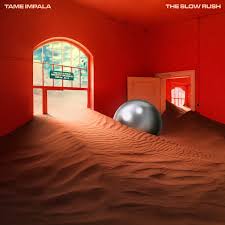STEPHEN MALKMUS AND THE JICKS - Mirror Traffic
 Monday, August 29, 2011 at 02:30PM
Monday, August 29, 2011 at 02:30PM 
![]()
Reunions can be awfully leading propositions. Like an accidental drunken hookup with an ex that moves too quickly from the bar to the bedroom, neither party really knows what's going on in either's head. "Are they just lonely?" "Do they really mean those things they said about their current relationship?" And, of course, "Where do we go from here?"
But no matter how desperate for a new long-term relationship the indie rock world may have been, there was little mistaking Pavement's tour last summer for anything other than a one-night stand (albeit a very enjoyable and extended one).
This was especially clear from the point of view of Stephen Malkmus. The lanky linguist leader was (generally) affable about the whole thing, but it was never in doubt where his vision was ultimately cast. His future was to be soundtracked not by the loose, manic wails of Pavement's court jester Bob Nastanovich, but by the formidable jamming chops of his new backing band, the Jicks (who, fresh off recruiting inimitable ex-Sleater-Kinney drummer Janet Weiss, were in the best form of their career).
Mirror Traffic marks the SM album that sees his solo output match the length of Pavement's storied discography. So, especially in the wake of the recent reunion, it's natural to examine the two careers side-by-side.
By the time of Pavement's fifth disc, 1999's Terror Twilight, the band was brutally frayed and dysfunctional. And even though the record was a good one, it shows. Slick, punchy, and often quite dark, the record leaves little to no room for forays into the band's freak zone (even the sonic detour that ends the slippery "Speak See Remember" is a tightly rendered slab of harmonic blues-rock rather than the punk spazz-out such a coda would normally elicit from the group). By this time, the group's secondary songwriter, the charming Scott "Spiral Stairs" Kannberg, was essentially removed as a contributor. In other words, under a cloud of caustic intraband relationships, Pavement had essentially become Malkmus' backing band. And for a man becoming increasingly frustrated with the limitations that imposed talent-wise, change was clearly on the horizon.
Mirror Traffic, on the other hand, could not be more confident and content as an album. After four solo albums that saw Malkmus subtly alternating back and forth between a sunny indie-pop screwball and a surprisingly capable guitar hero, this record is the first to successfully merge the two identities. It been mentioned in a few reviews already that it's as all-over-the-place as any record he's made since 1995's landmark Wowee Zowee, and this is fairly true. But this time around, his approach to such omnivorous tastes is far more mature and sonically refined. This is not a record that could have ever been made by Pavement, instead accentuating the admirable internal communication he's built up over the years with the Jicks—this is especially true of bassist/singer Joanna Bolme, the only player to be on all five of SM's solo records (although it also appears to be the swansong for Weiss, who has since joined the killer Wild Flag with S-K's Carrie Brownstein).
Also helping to complete the picture is the record's producer, Beck. Between his own playful Record Club series and some stellar production gigs with Charlotte Gainsbourg and Thurston Moore, Beck's on quite a roll and you can hear this all over Mirror Traffic. Sometimes, it's something quite signature like the horn arrangements that close the beautiful "No One Is (As I Are Be)." But overall, it's in the relaxed, natural vibe that characterizes even the most frantic moments on the record.
Pavement's reunion proved that Malkmus could play it loose and sloppy one more time for the kids (even if those "kids" are now parents of actual kids), but its swift and quiet conclusion, devoid of any teasing maybes or extra legs ( à la Pixies), proved that Malkmus is very comfortable in his present.
 Pop/Rock
Pop/Rock 


Reader Comments